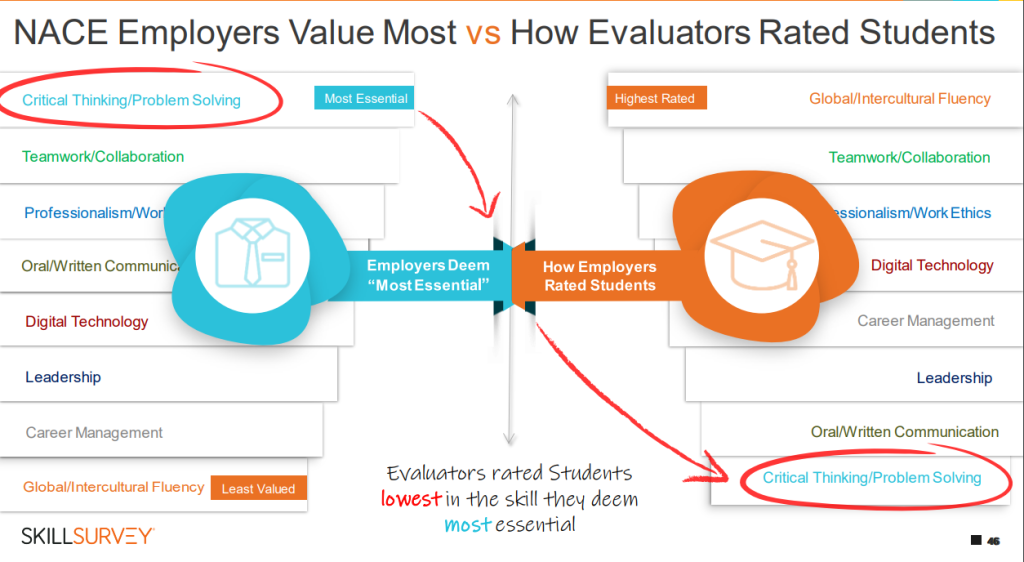Career Everywhere Conference
Enhancing Career Readiness: Equipping Students with Competencies for Post-Graduate Success
Friday, November 3, 2023 | UConn, Storrs, Connecticut
The UConn Center for Career Development is cultivating a customized Career Everywhere experience focused on eight NACE Career Competencies for faculty, staff, alumni, and employers to connect and be inspired. We invite you to a day of learning and networking with subject matter experts providing instruction and guidance on leading practices in and out of the classroom on the competencies and helping students articulate their experiences.
Join your colleagues for a day of connection, reflection, and strategic integration of career development to invigorate your classrooms, work, advising, and mentoring spaces.
Why the Career Competencies?
The mission of Career Everywhere is to ensure that all students including underrepresented and marginalized populations have the tools and resources needed for post-graduation success. This will be achieved by integrating career development methodology into every facet of a student’s experience at the University of Connecticut. Through intentionally infusing career development into the UConn experience, Career Everywhere provides access and equity to career development for UConn students.
Career Readiness Competencies
According to students and families, the reason most cited for enrolling in higher education is to improve the student’s job prospects (Gallup & Strada, 2017). However, as of 2018, only 43% of seniors felt prepared for their future careers (McGraw-Hill, 2018) and similarly, in a survey of 217 employers, 46% of respondents reported they had to provide remedial training to recent graduates to get them up to speed (Casner-Lotto, Rosenblum, & Wright, 2009).
In an effort to bridge this gap between higher education and workforce readiness, the National Association of College and Employers (NACE) developed the career readiness competencies to identify and define a core set of skills, transferable across occupations and industries, for post-university career success. These competencies provide new college graduates and the professionals who serve their career development needs and recruit them into the workforce, with a shared understanding of what is needed to launch and develop a successful career.

How did NACE decide which career readiness skills to focus on?
During 2015, NACE convened a task force consisting of college career services and human resources/recruiting professionals to define career readiness for the college educated. The task force identified seven competencies that define career readiness and then NACE surveyed 606 of its employer members, querying them on the importance of these competencies in the workplace. Subsequent task forces were formed to revise the competencies, including examining inclusion of global/intercultural fluency, and to provide sample behaviors representative of each competency that employers, institutions and students could use to evaluate proficiency.
What are the 8 career competencies?
- Career & Self Development
Proactively develop oneself and one’s career through continual personal and professional learning, awareness of one’s strengths and weaknesses, navigation of career opportunities, and networking to build relationships within and without one’s organization.
- Communication
Clearly and effectively exchange information, ideas, facts, and perspectives with persons inside and outside of an organization.
- Critical Thinking
Identify and respond to needs based upon an understanding of situational context and logical analysis of relevant information.
- Equity & Inclusion
Demonstrate the awareness, attitude, knowledge, and skills required to equitably engage and include people from different local and global cultures. Engage in anti-racist practices that actively challenge the systems, structures, and policies of racism.
- Leadership
Recognize and capitalize on personal and team strengths to achieve organizational goals.
- Professionalism
Knowing work environments differ greatly, understanding and demonstrating effective work habits, and acting in the interest of the larger community and workplace.
- Teamwork
Build and maintain collaborative relationships to work effectively toward common goals, while appreciating diverse viewpoints and shared responsibilities.
- Technology
Understand and leverage technologies ethically to enhance efficiencies, complete tasks, and accomplish goals.
Click here to view examples of sample behaviors for each competency.
Visit this page for NACE’s full report: Development and Validation of the NACE Career Readiness Competencies (2022).
Conference Networking Sponsor

